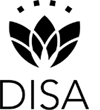The South African National Research Foundation (NRF), through a collaborative agreement between the South Africa Music Archive Project/Digital Imaging South Africa (SAMAP/DISA) and the International Library of African Music (ILAM), is funding the cataloguing and digitizing of a substantial portion of the early acetate and vinyl recordings produced by Hugh Tracey in the 1940s and 1950s, which are housed in the ILAM archive.
The work of cataloguing and digitizing these large collections (17,000+ sound items to be digitized in 2007) is being done by ILAM's sound engineer, Elijah Madiba; a sound assistant, Hilton Boererwa; ethnomusicologist, Dr. Lee Watkins; cataloguing librarian, Michelle Boysen; along with eight Rhodes University final year BA, BSC and Honours students receiving NRF student assistantships, who have been trained in meta-data and sound capture. Project management is done cooperatively between Dr. Dale Peters, Director of SAMAP/DISA and Professor Diane Thram, Director of ILAM, with hands-on assistance from Rhodes University Head of Library Services, Gwenda Thomas, and Head of Cataloguing, Jeanne Berger.
Compressed 30 second sound clips with metadata files attached are being delivered to SAMAP for upload onto the ILAM on-line archive on the DISA website. Researchers, students and any other individuals interested in undertaking research projects, music education projects, or simply wanting full sound files of the recordings should contact ILAM directly to obtain permission for use.
Project proposals are welcomed by ILAM's Director (Professor Diane Thram) for research initiatives and/or production of educational materials using the recordings and other related materials in the ILAM archive. MP3 files or CD/DVDs of individual songs or collections of songs can be arranged upon request by contacting ILAM's sound engineer (Elijah Madiba).
This project is making ILAM's archive accessible throughout the world via the on-line archive being created on the DISA website, and upon completion, through the ILAM website and the Rhodes University on-line Library Catalogue system (OPAC).


